Imagine a car – any car you love, a sleek sports coupe or a sturdy SUV. Now, peel back the shiny exterior and the comfortable interior. Beneath the glamour lies a complex skeleton of metal parts, precisely shaped and formed to provide the car its strength, structure, and safety features. This intricate network of metal profiles is often the handiwork of a tireless machine: the Automobile Profile Roll Forming Machine.
Function of Automobile Profile Roll Forming Machines
Automobile profile roll forming machines are the workhorses of the automotive industry, continuously churning out precisely shaped metal profiles from sheet metal coils. They operate on a fundamental principle: the metal sheet is fed through a series of forming stations, each equipped with specially designed rollers. With each station, the sheet is progressively bent and shaped into the desired profile. Think of it like rolling out dough and using cookie cutters of different shapes – except here, the “cookie cutters” are sophisticated rollers that precisely mold the metal into complex shapes.
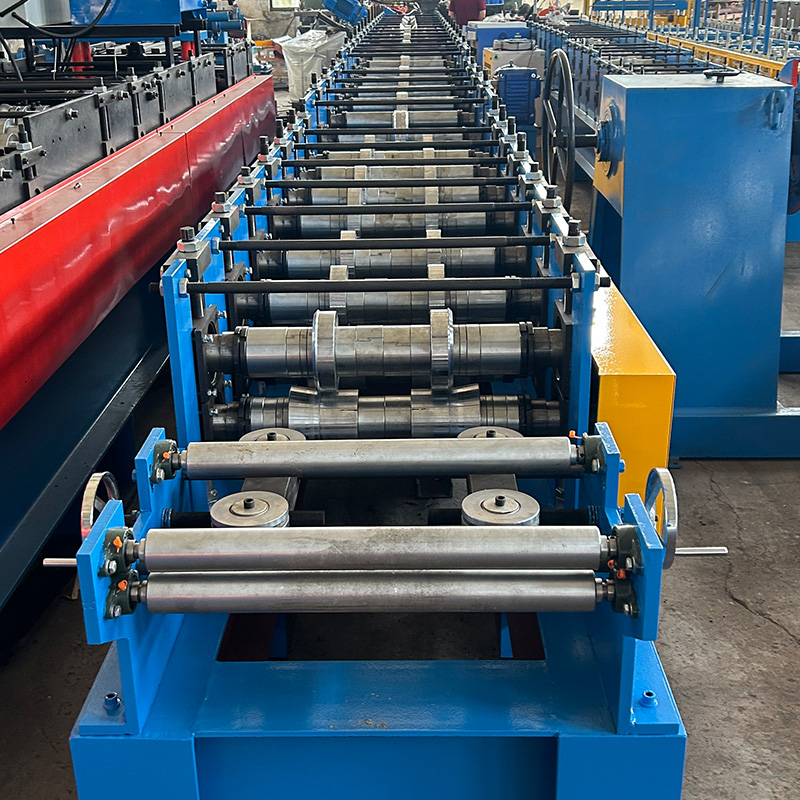
Types of Automobile Profile Roll Forming Machines
There’s no one-size-fits-all solution in the world of roll forming. Automobile profile roll forming machines come in various configurations, each catering to specific needs:
- High-Speed vs. High-Precision: Some machines prioritize speed, churning out large quantities of simpler profiles for high-volume production lines. Others take a slower, more meticulous approach, ensuring the utmost precision for intricate structural components.
- Single vs. Multi-Station: Simpler machines might have a few forming stations for basic profiles. For complex shapes, multi-station machines with a dozen or more stations progressively bend and shape the metal into the final form.
- Open vs. Closed Profiles: Open profiles are U-shaped or L-shaped, while closed profiles create hollow tubes or boxes. The machine configuration adapts to handle the creation of both open and closed profiles.
Applications of Automobile Profile Roll Forming Machines
The reach of automobile profile roll forming machines extends far beyond what meets the eye. These machines are instrumental in shaping a vast array of automotive components:
- Structural Components: From chassis members and side rails to roof bows and floor reinforcements, roll forming machines create the backbone of a car’s structure.
- Body Panels: Door frames, window channels, and even some roof components can be formed using roll forming machines.
- Safety Features: Roll forming plays a crucial role in shaping components like crumple zones and side impact beams, vital for occupant safety.
- Interior Parts: Seat tracks, reinforcement beams for dashboards, and even some trim pieces can be efficiently produced using roll forming.
Advantages of Automobile Profile Roll Forming Machines
Compared to other metal forming techniques like stamping or welding, roll forming offers several distinct advantages:
- High Efficiency: Roll forming is a continuous process, allowing for rapid production of large quantities of profiles.
- Dimensional Accuracy: The precisely designed rollers ensure consistent and accurate profiles, minimizing the need for rework.
- Material Savings: Roll forming utilizes almost all of the raw material, minimizing waste compared to stamping which generates scrap metal.
- Lightweight Profiles: Roll forming can create thin-walled profiles with high strength-to-weight ratios, contributing to fuel efficiency.
- বহুমুখিতা: Roll forming machines can be adapted to produce a wide variety of profiles with relatively simple tooling changes.
-
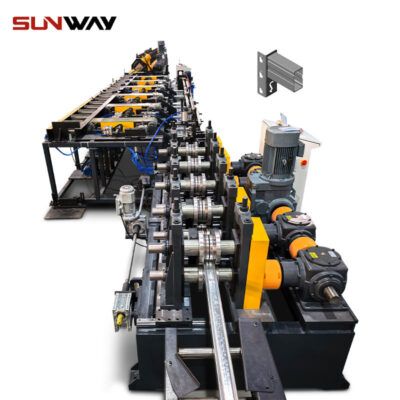 Storage Rack Shelf Box Panel Making Machine Steel Storage Rack System Box Beam Roll Forming Line
Storage Rack Shelf Box Panel Making Machine Steel Storage Rack System Box Beam Roll Forming Line -
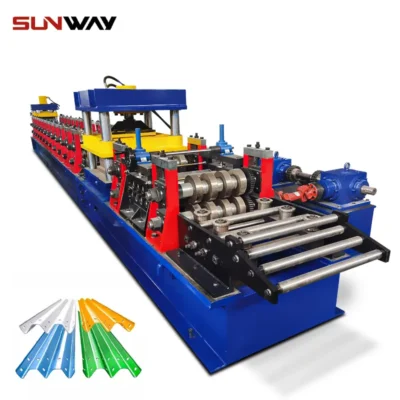 2 Waves Highway Guardrail Roll Forming Machine
2 Waves Highway Guardrail Roll Forming Machine -
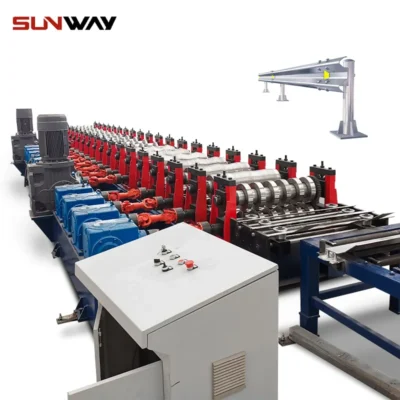 3 Waves Highway Guardrail Roll Forming Machine
3 Waves Highway Guardrail Roll Forming Machine -
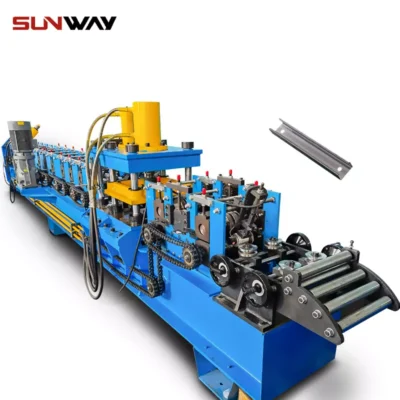 সি সেকশন ব্রেসিং ওমেগা স্টোরেজ র্যাক খাড়া পোস্ট রোল ফর্মিং মেশিন
সি সেকশন ব্রেসিং ওমেগা স্টোরেজ র্যাক খাড়া পোস্ট রোল ফর্মিং মেশিন -
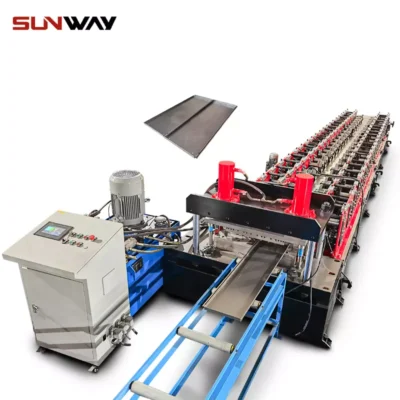 স্টিল বক্স প্লেট মেকিং রোল ফর্মিং মেশিন
স্টিল বক্স প্লেট মেকিং রোল ফর্মিং মেশিন -
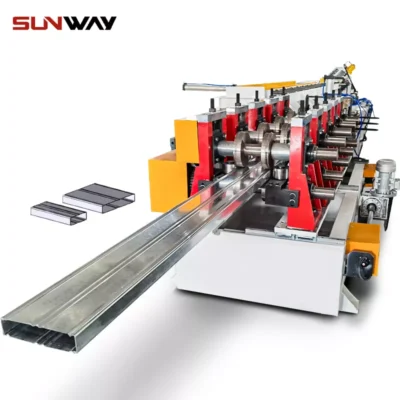 বক্স মরীচি স্টীল রোল শেল্ফ কলাম জন্য মেশিন গঠন
বক্স মরীচি স্টীল রোল শেল্ফ কলাম জন্য মেশিন গঠন -
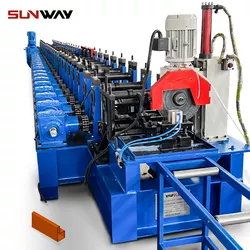 প্যালেট র্যাকিং স্টেপ বিম পি বিম রোল তৈরির মেশিন
প্যালেট র্যাকিং স্টেপ বিম পি বিম রোল তৈরির মেশিন -
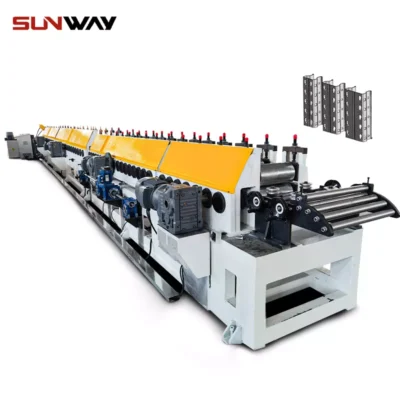 গুদাম শেল্ফ খাড়া রোল গঠন মেশিন
গুদাম শেল্ফ খাড়া রোল গঠন মেশিন -
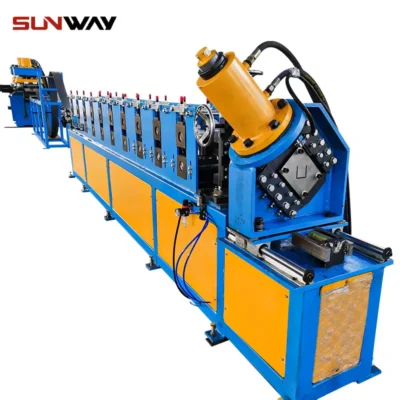 বৈদ্যুতিক মন্ত্রিসভা ফ্রেম রোল গঠনের মেশিন
বৈদ্যুতিক মন্ত্রিসভা ফ্রেম রোল গঠনের মেশিন
Disadvantages of Automobile Profile Roll Forming Machines
While a powerful tool, roll forming has limitations to consider:
- Limited Profile Complexity: Extremely intricate profiles with tight bends or sharp corners might be challenging to achieve with roll forming.
- Material Thickness Limitations: Roll forming typically works best with thinner sheet metal. Very thick materials might require pre-forming or alternative methods.
- High Initial Investment: The cost of a roll forming machine can be substantial, especially for complex multi-station machines.
Key Considerations When Choosing an Automobile Profile Roll Forming Machine
Selecting the right automobile profile roll forming machine hinges on several factors:
- Production Needs: Consider the volume and complexity of profiles you need to produce.
- Material Type and Thickness: Choose a machine compatible with the specific metal you’ll be using.
- Desired Level of Automation: Do you need a fully automated system or a more manual operation?
- Budget: Machine cost varies based on complexity and features. Balance your needs with your budget.
Suppliers and Pricing
Beyond the information above, here’s a more detailed breakdown of some prominent suppliers in the automobile profile roll forming machine arena:
- Dahlih Machinery: This Taiwanese giant is a world leader in roll forming technology. They offer a comprehensive range of automobile profile roll forming machines, from high-speed, volume-oriented machines to those specializing in complex, high-precision profiles. Dahlih is known for its innovative designs, durability, and excellent after-sales support. However, their premium machines come with a premium price tag.
- Yawei Machinery: Another major Taiwanese player, Yawei Machinery caters to a broad spectrum of industries, including automotive. They deliver robust and reliable roll forming machines at competitive prices. Their offerings might not be the most cutting-edge in terms of technology, but they excel in providing dependable workhorses for mid-volume production lines.
- Euromac: This Italian manufacturer brings European finesse to the world of roll forming. Euromac machines are known for their exceptional precision and build quality, ideal for companies requiring top-notch accuracy for intricate profiles. While their machines boast superior performance, the price point reflects the high-end engineering.
- Durma: A Turkish manufacturer, Durma offers a good balance between affordability and functionality. Their automobile profile roll forming machines are well-suited for mid-range production volumes and provide a good mix of features at a competitive price. However, some users might find the user interface and customer service lacking compared to established players.
- Bystronic: This Swiss powerhouse is a well-respected name in metalworking machinery. Bystronic’s automobile profile roll forming machines are known for their automation capabilities and integration with other Bystronic machinery, creating a seamless production workflow. Their focus on automation comes at a cost, making Bystronic machines some of the priciest options on the market.
Pricing Considerations for Automobile Profile Roll Forming Machines
The cost of an automobile profile roll forming machine can vary significantly depending on several factors:
- Machine Complexity: Simpler, single-station machines for basic profiles will naturally be less expensive than complex, multi-station machines capable of intricate shapes.
- Level of Automation: Fully automated machines with integrated feeding and stacking systems will cost more than manual or semi-automated options.
- Brand and Reputation: Established, high-end brands like Bystronic or Euromac might command a premium price compared to less-recognized manufacturers.
- Customization: Custom-built machines designed for specific profiles will incur additional costs compared to standard models.
A ballpark figure for a basic automobile profile roll forming machine might start around $50,000, while complex, high-precision machines can reach upwards of $500,000 or even more.
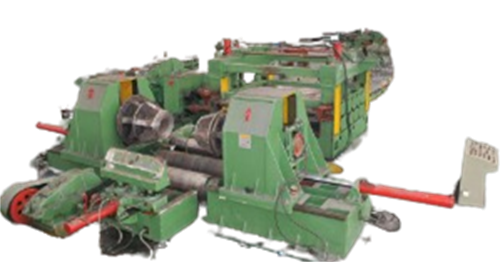
FAQ
Here are some frequently asked questions regarding automobile profile roll forming machines, answered in a clear and concise format:
| Question | Answer |
|---|---|
| What are the benefits of using a roll forming machine for automotive parts? | Roll forming offers high production efficiency, dimensional accuracy, material savings, lightweight profiles, and versatility in profile creation. |
| What are the limitations of roll forming machines? | Roll forming might struggle with highly complex profiles, is limited in material thickness capabilities, and requires a significant initial investment. |
| What factors should I consider when choosing a roll forming machine? | Production needs, material type and thickness, desired automation level, and budget are all crucial factors. |
| How much does an automobile profile roll forming machine cost? | The price can vary greatly depending on complexity, automation, brand, and customization. Expect a range of $50,000 to $500,000 or more. |
| What are some of the leading suppliers of automobile profile roll forming machines? | Dahlih Machinery, Yawei Machinery, Euromac, Durma, and Bystronic are some of the key players in the market. |
